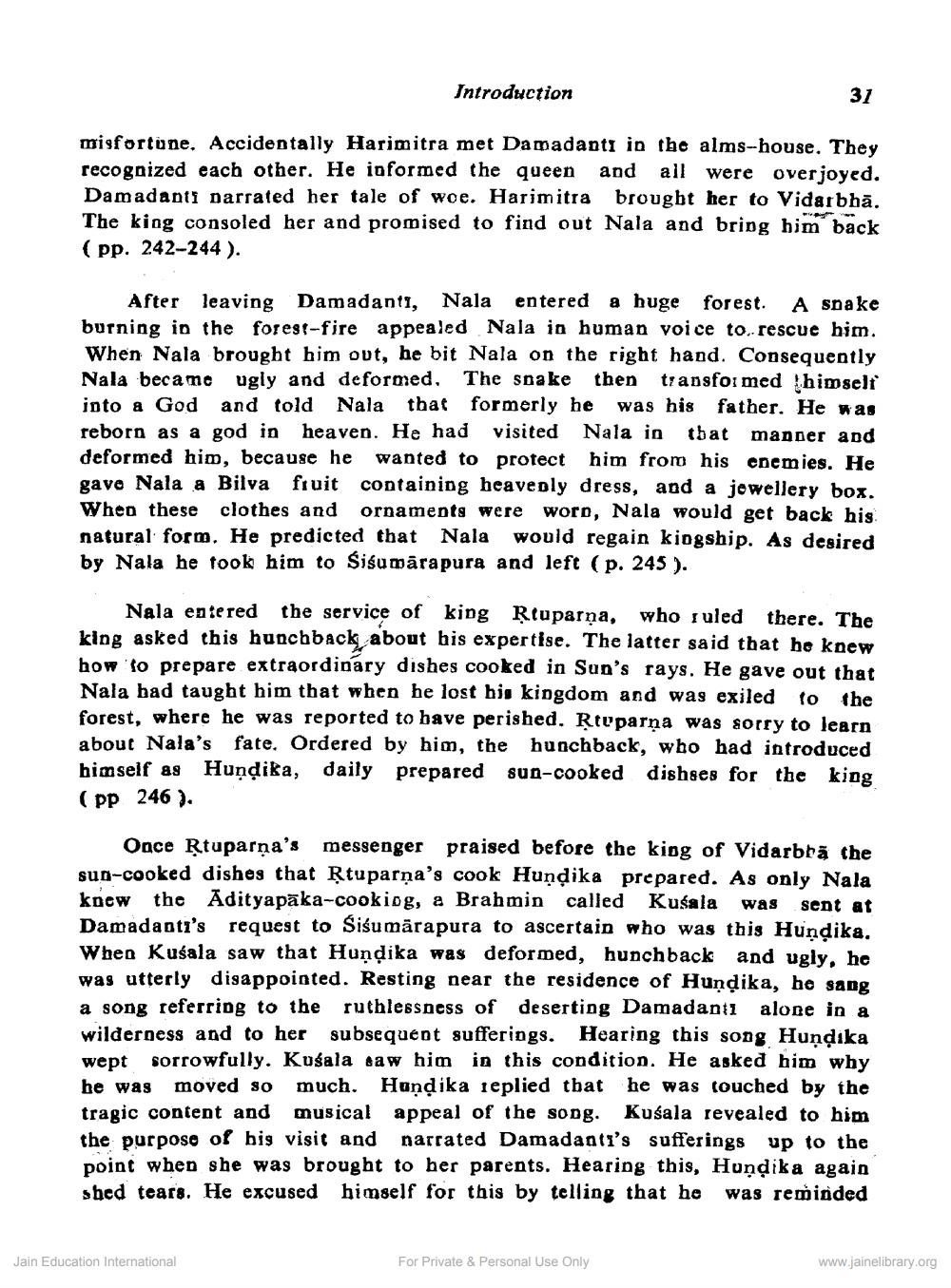________________
Introduction
37
misfortune. Accidentally Harimitra met Damadanti in the alms-house. They recognized each other. He informed the queen and all were overjoyed. Damadanti Darrated her tale of woe. Harimitra brougbt her to Vidarbhā. The king consoled her and promised to find out Nala and bring him back (pp. 242-244).
After leaving Damadanti, Nala entered a huge forest. A snake burning in the forest-fire appealed Nala in human voice to rescue him. When Nala brought him out, he bit Nala on the right hand. Consequently Nala became ugly and deformed. The spake then transformed himself into a God and told Nala that formerly he was his father. He was reborn as a god in heaven. He had visited Nala in that manner and deformed him, because he wanted to protect him from his enemies. He gavo Nala a Bilva fruit containing heavenly dress, and a jewellery box. When these clothes and ornaments were worn, Nala would get back his natural form. He predicted that Nala would regain kingship. As desired by Nala he took him to Siśumārapura and left (p. 245 ).
Nala entered the service of king Rtuparna, who ruled there. The king asked this hunchback about his expertise. The latter said that he knew how to prepare extraordinary dishes cooked in Sun's rays. He gave out that Nala bad taught him that when he lost his kingdom and was exiled to the forest, where he was reported to bave perished. Rtuparna was sorry to learn about Nala's fate. Ordered by him, the hunchback, who had introduced himself as Hundika, daily prepared sun-cooked dishes for the king ( pp 246).
Oace Rtuparna's messenger praised before the king of Vidarbha the sus-cooked dishes that ķtuparņa's cook Hundika prepared. As only Nala knew the Adityapāka-cooking, a Brahmin called Kušala was sent at Damadanti's request to Siśumärapura to ascertain who was this Hundika. When Kusala saw that Hundika was deformed, hunchback and ugly, he was utterly disappointed. Resting near the residence of Hundika, he sang a song referring to the ruthlessness of deserting Damadanii alone in a wilderness and to her subsequent sufferings. Hearing this song Hundika wept sorrowfully. Kušala saw him in this condition. He asked him why he was moved so much. Hundika ieplied that he was touched by the tragic content and musical appeal of the song. Kušala revealed to him the purpose of his visit and narrated Damadanti's sufferings up to the point when she was brought to her parents. Hearing this, Hundika again shed tears. He excused himself for this by telling that he was reminded
Jain Education International
For Private & Personal Use Only
www.jainelibrary.org




